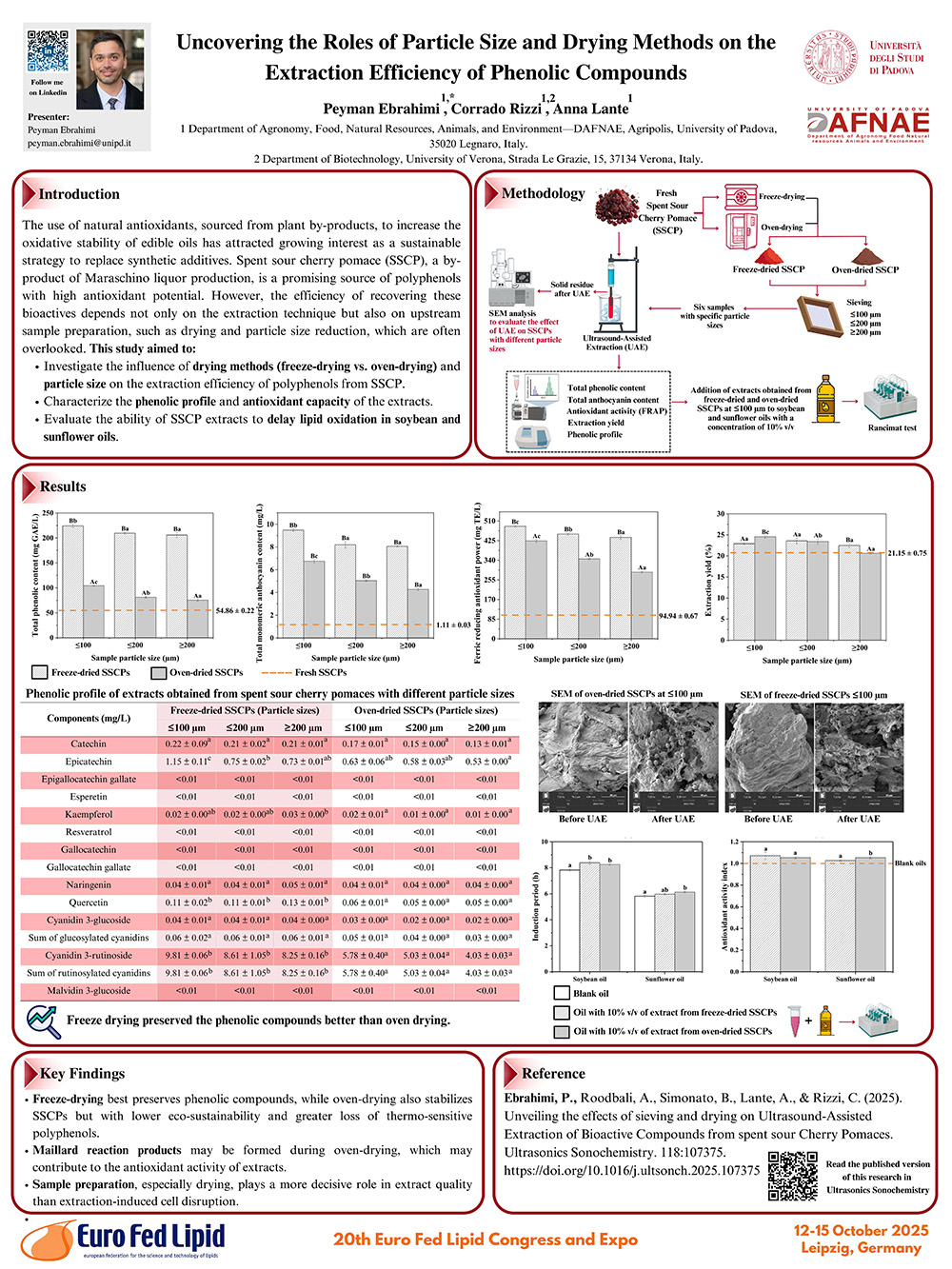The efficient recovery of natural antioxidants from plant matrices depends not only on the extraction method but also on the sample preparation, which is often underestimated. Two key elements in sample preparation are drying and particle size reduction (grinding and sieving). This study investigated how drying methods (i.e., freeze-drying and oven-drying) and particle sizes (≤100, ≤200, ≥200 µm) affect aqueous ultrasound-assisted extraction of polyphenols from spent sour cherry pomace (SSCP), a by-product of liquor production.
The characteristics of extracts were analyzed using spectrophotometric and chromatographic assays. The antioxidant activity of the extracts was then evaluated in vegetable oils using the Rancimat method. Results showed that the drying processes significantly reduce moisture content (p ≤ 0.05), resulting in a higher content of polyphenols from a given sample weight. The extraction efficiency was improved when the particle sizes were smaller, probably due to the increased surface area allowing a higher contact between the matrix and the extracting solvent. Freeze-dried samples sieved at ≤100 µm yielded the highest contents of total phenolics (224.32 ± 3.13 mg gallic acid equivalent/L), epicatechin (1.15 ± 0.11 mg/L), cyanidin-3-rutinoside (9.81 ± 0.06 mg/L), total monomeric anthocyanins (9.48 ± 0.12 mg/L), and ferric reducing antioxidant power (487 ± 3.58 mg Trolox equivalent/L). These results suggest that freeze-drying preserves bioactive compounds better than oven-drying. SEM imaging of the post-extraction pellets showed similar levels of cell disruption across treatments, implying that extract quality differences are mainly driven by sample preparation (particularly drying) rather than extraction-induced cell damage. Finally, aqueous extracts obtained from dried SSCPs sieved at ≤100 SSCPs µm were added to soybean and sunflower oils, and the results indicated their reliable capacity to delay lipid oxidation. This highlights that the proposed extraction process has the potential to produce strong natural antioxidants for food applications.
